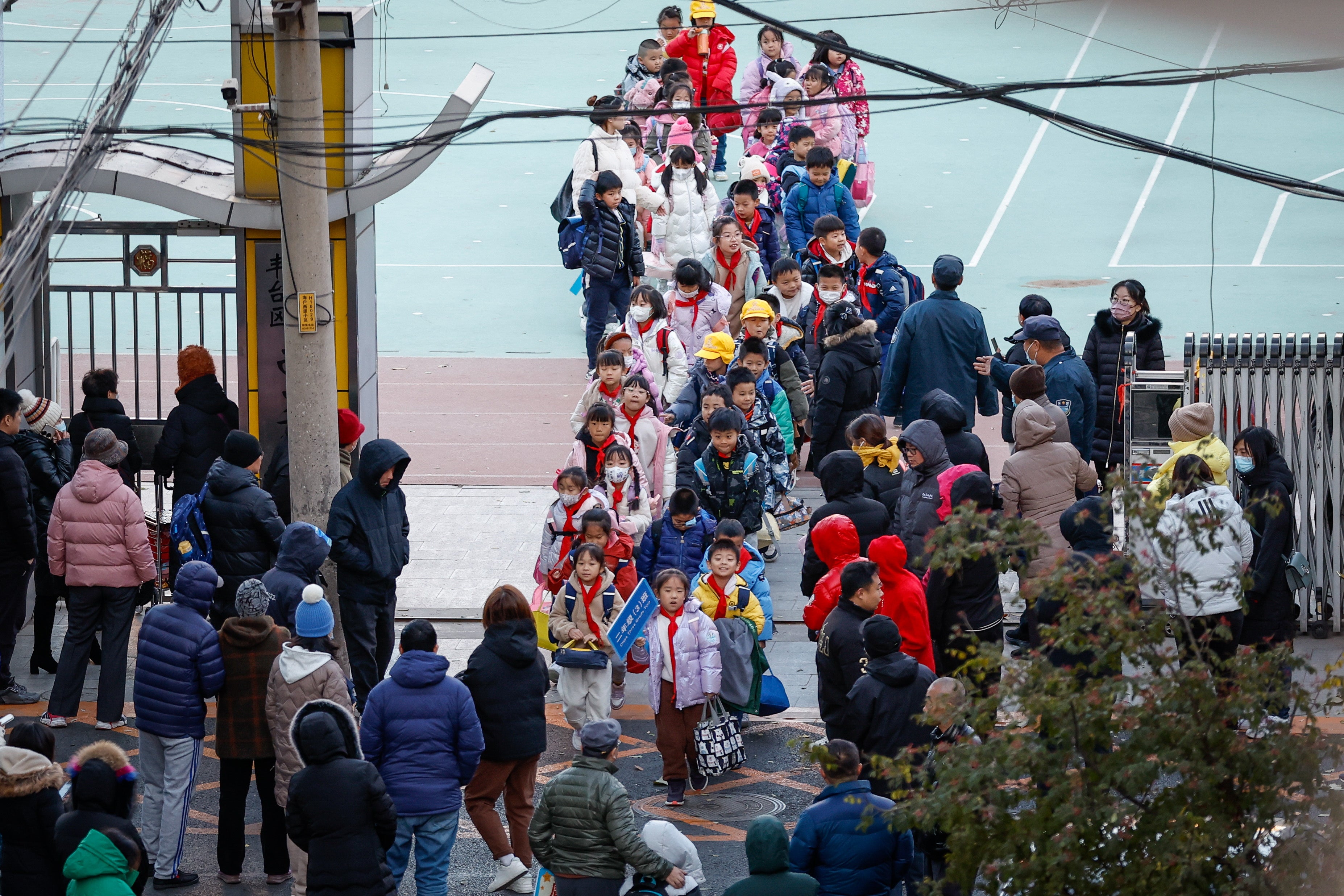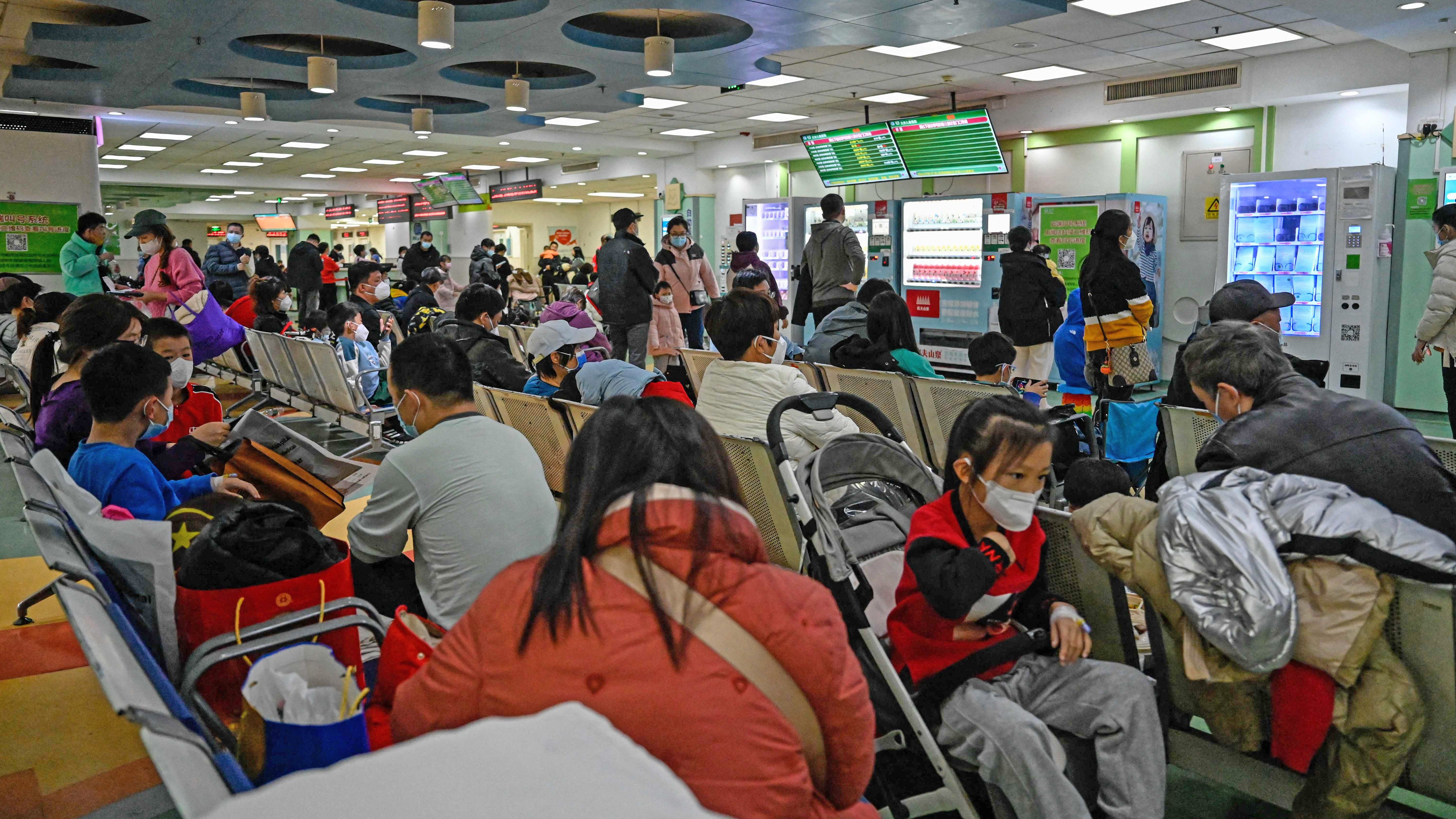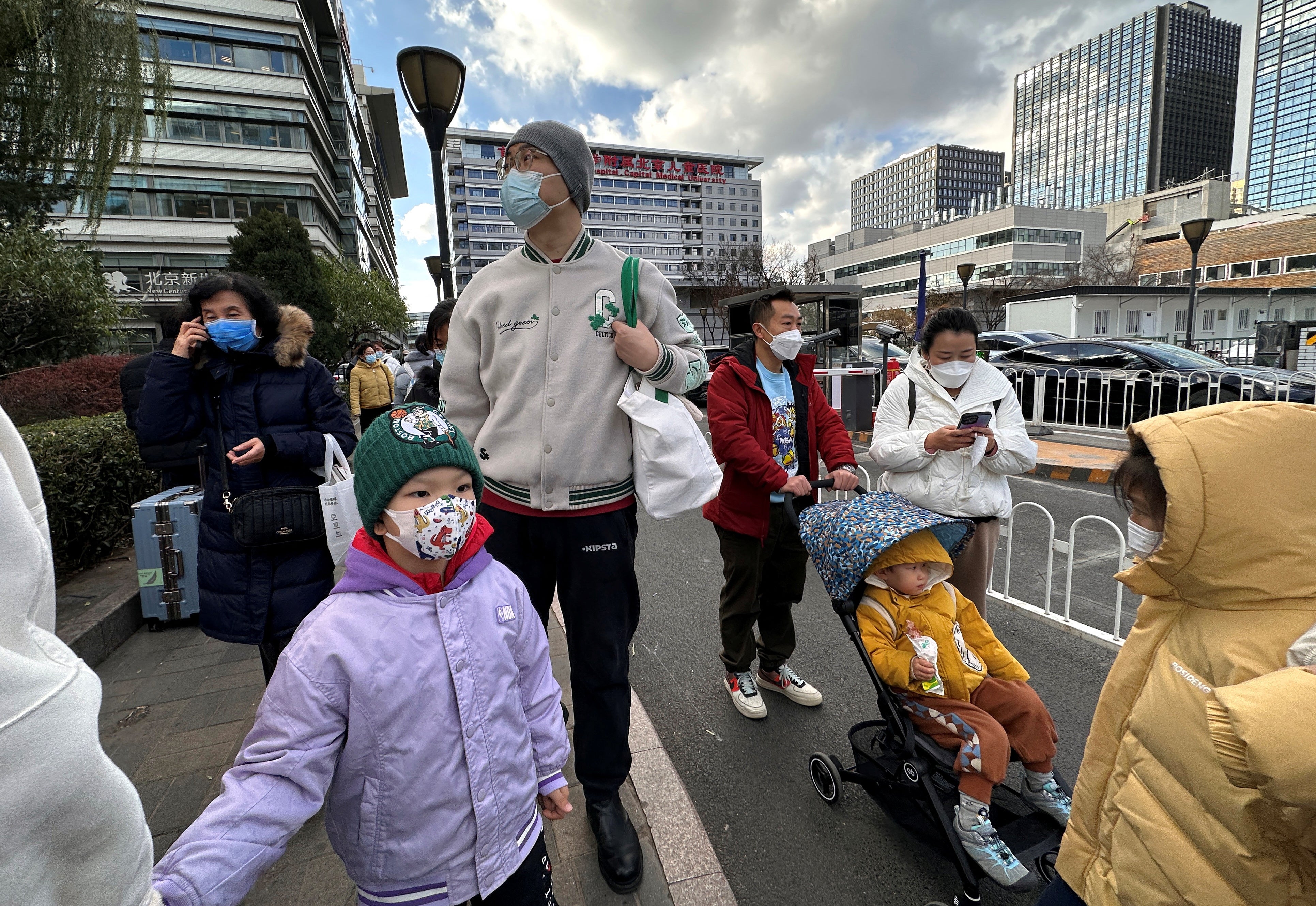China’s neighbours express concern over spike in respiratory illnesses among children
Governments in Taiwan, India, Nepal and Thailand are heightening surveillance and preparedness
China’s neighbouring countries in Asia have their guards up as a wave of infections among children caused alarm among scientists in the country.
Countries, including India, Taiwan, Thailand and Nepal are on alert or ramping up surveillance in preparation for a possible rise in pneumonia-like cases among people.
It comes amid reports and the World Health Organisation’s (WHO) concerns over an overwhelming number of admissions of children with respiratory illness, as local authorities in China set up new fever clinics to deal with the influx and urge people to wear masks.
The Chinese Health Ministry has linked the rise in cases to the simultaneous circulation of several types of pathogens, such as influenza, rhinoviruses, the respiratory syncytial virus (or RSV), the adenovirus, as well as bacteria such as mycoplasma pneumonia.
But it insisted that no “unusual or novel diseases” have been found, amid fears of an outbreak similar to the Covid-19 pandemic and scepticism over the Chinese government’s transparency on data.
On Saturday, Taiwan became one of the first countries to heighten surveillance, with its health minister putting the island’s ports and airports on “high alert”.
The Taiwan Centers for Disease Control said notices have been placed, urging travellers arriving from mainland China, Hong Kong and Macau to reveal their travel history and seek medical help if symptomatic.

CDC spokesperson Lo Yi-chun said in a weekly news conference update that measures were being taken despite a decline in transmission of influenza-like diseases in Taiwan while cases of mycoplasma pneumonia-caused illnesses are at a low level.
Health officials warned people travelling to China to pay attention to hygiene, get vaccinated for flu and wear face masks during travels to the country.
In neighbouring India, at least five states have put health infrastructure on alert after the federal health ministry directed all the state governments to ensure readiness for a potential surge of respiratory illness.
Health agencies in the states of Rajasthan, Gujarat, Uttarakhand, Karnataka, and Tamil Nadu have issued advisories so far.

“In view of the recent reports indicating a surge in respiratory illness in children in northern China in recent weeks, the Union Health Ministry has proactively decided to review the preparedness measures against respiratory illnesses, as a matter of abundant caution,” India’s Health Ministry said on Sunday.
It added that there “is no need for any alarm” as the “government of India is closely monitoring the situation”.
Thailand is also bracing for a potential rise in respiratory illness among its citizens. The Thai Ministry of Public Health has called for officials to ramp up surveillance, especially in tourist areas, and advised people to wear masks and wash their hands to avoid the risk of disease.
Hospitals have been urged to ensure they have an adequate supply of medications, medical equipment (such as ventilators, oxygen supplies and diagnostic tools), protective gear for staff and sufficient bed capacity to effectively treat and manage a potential increase in respiratory illnesses.
Thailand’s public health minister Dr Cholnan Srikaew: “There’s no need yet to set up surveillance and screening of passengers at airports. But we’re putting our guard up.”

Nepal health officials said they have been “carrying out regular surveillance of those pathogens” as respiratory infections including influenza and mycoplasma pneumonia are already in circulation in the country.
“All the said viruses and bacteria are common in our country and are in circulation,” said Dr Ranjan Bhatta, director at the National Public Health Laboratory.
Dr Sher Bahadur Pun, the Head of Sukraraj Tropical and Infectious Disease Hospital in Teku, Kathmandu, told The Daily Telegraph that “children are increasingly experiencing flu-like symptoms”.
“In light of the growing number of tourists visiting Nepal in recent weeks, I believe it’s crucial for us to prepare for a potential outbreak originating from China,” he said.
Fears over the illness sweeping Chinese hospitals are rife after the WHO issued a formal request to China for data on the illnesses.

It cited the public disease surveillance system ProMED – which helped raise the alarm over the emergence of Covid, Sars and Mers – warned about reports of “undiagnosed pneumonia” on 21 November.
A Beijing children’s hospital earlier told state media CCTV that at least 7,000 patients were being admitted daily to the institution, far exceeding its capacity.
Last week, the largest paediatric hospital in nearby Tianjin reportedly received more than 13,000 children at its outpatient and emergency departments. Liaoning province, about 690km northeast of the capital, is also grappling with high case numbers.
However, experts have said there is no need for global concerns yet. China is also complying with the UN health agency and its data sent to the WHO indicated that the rise in cases can be attributed to a rise in known and existing pathogens.
“Thus far, based on what we know from WHO, I don’t think the spike in respiratory illnesses should cause global concern,” Dr Leana Wen, a medical health expert, told CNN.
Join our commenting forum
Join thought-provoking conversations, follow other Independent readers and see their replies
Comments
Bookmark popover
Removed from bookmarks